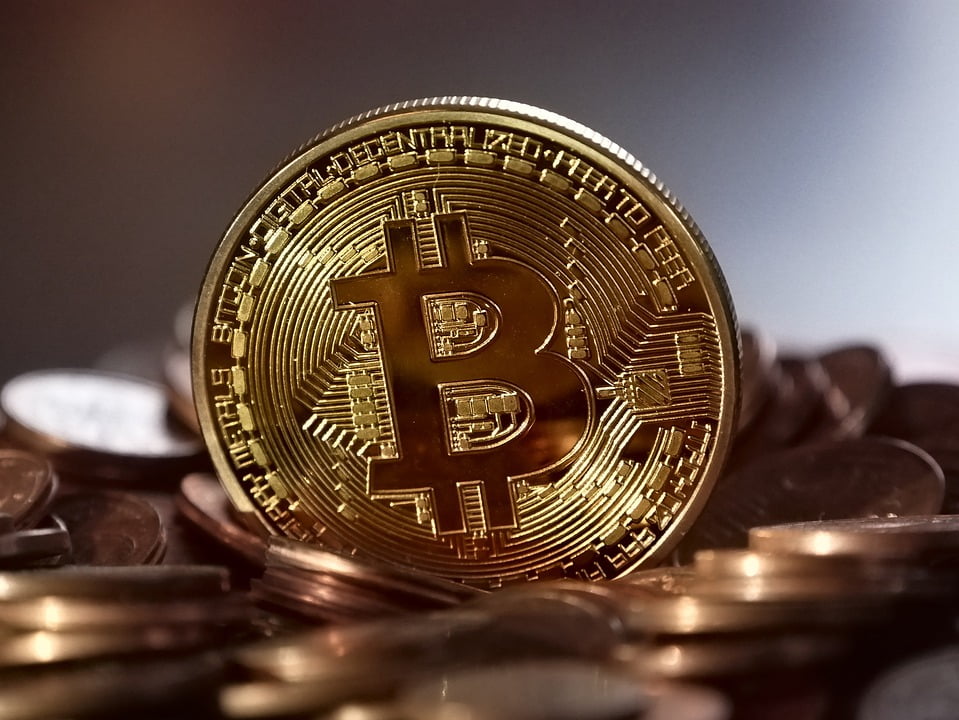The emergence of Bitcoin has sparked a heated debate surrounding its potential to replace traditional fiat currencies and become the currency of the future. Since its inception in 2009, Bitcoin, the first decentralized digital currency, has gained immense popularity, attracting both ardent supporters and staunch critics.
Advocates of Bitcoin argue that it offers numerous advantages over traditional currencies. One of its most appealing features is its decentralized nature. Unlike fiat currencies, which are controlled by governments and central banks, Bitcoin operates on a peer-to-peer network, meaning that no single entity has control over its supply or circulation. This decentralized structure is seen as a safeguard against inflation and government manipulation, as well as a means of providing financial access to individuals in countries with unstable currencies or limited banking infrastructure.
Furthermore, Bitcoin transactions are secure, transparent, and irreversible, thanks to the use of blockchain technology. This decentralized public ledger records all transactions, making it extremely difficult for fraud or double-spending to occur. Additionally, the fixed supply of 21 million coins in Bitcoin is appealing to those concerned about the potential devaluation of fiat currencies due to excessive money printing.
However, critics of Bitcoin point to its volatility and speculative nature as major drawbacks. The price of Bitcoin has been known to fluctuate wildly, making it a risky asset to hold. Moreover, its potential use in illicit activities and the lack of regulatory oversight have raised concerns about its legitimacy as a mainstream currency.
Despite these criticisms, the adoption of Bitcoin has been steadily increasing. Major companies like Tesla and PayPal now accept Bitcoin as a form of payment, and institutional investors are starting to allocate a portion of their portfolios to cryptocurrencies. Additionally, several countries are exploring the idea of creating their own digital currencies, indicating a growing acceptance of the technology behind Bitcoin.
So, is Bitcoin the future of currency? While it’s difficult to predict with certainty, one thing is clear: Bitcoin has disrupted the traditional financial system and forced a reevaluation of how we perceive and use money. Whether it will ultimately replace fiat currencies remains to be seen, but it’s undeniable that Bitcoin has already made a significant impact on the world of finance. As the technology continues to evolve and gain wider acceptance, it’s likely that Bitcoin will play an increasingly important role in the future of currency.
The Advantages of Bitcoin
Bitcoin has been gaining popularity since its inception in 2009, and it has attracted both fervent supporters and staunch critics. Proponents of Bitcoin argue that it has numerous advantages over traditional currencies. One of the most appealing aspects of Bitcoin is its decentralized nature. Unlike fiat currencies, which are controlled by governments and central banks, Bitcoin operates on a peer-to-peer network, meaning that no single entity has control over its supply or circulation. This decentralized nature is seen as a safeguard against inflation and government manipulation, as well as a way to provide financial access to individuals in countries with unstable currencies or limited banking infrastructure.
Moreover, Bitcoin transactions are secure, transparent, and irreversible, thanks to the use of blockchain technology. This decentralized public ledger records all transactions, making it extremely difficult for fraud or double-spending to occur. Additionally, Bitcoin’s fixed supply of 21 million coins is appealing to those concerned about the potential devaluation of fiat currencies due to excessive money printing.
The Drawbacks of Bitcoin
On the other hand, critics of Bitcoin point to its volatility and speculative nature as major drawbacks. The price of Bitcoin has been known to fluctuate wildly, making it a risky asset to hold. Moreover, its potential use in illicit activities and the lack of regulatory oversight have raised concerns about its legitimacy as a mainstream currency.
The Growing Acceptance of Bitcoin
Despite these criticisms, the adoption of Bitcoin has been steadily increasing. Major companies like Tesla and PayPal now accept Bitcoin as a form of payment, and institutional investors are starting to allocate a portion of their portfolios to cryptocurrencies. Additionally, several countries are exploring the idea of creating their own digital currencies, indicating a growing acceptance of the technology behind Bitcoin.
The Future of Bitcoin
So, is Bitcoin the future of currency? While it’s difficult to predict with certainty, it’s clear that Bitcoin has disrupted the traditional financial system and forced a rethink of how we perceive and use money. Whether it will ultimately replace fiat currencies remains to be seen, but it’s undeniable that Bitcoin has already made a significant impact on the world of finance. As the technology continues to evolve and gain wider acceptance, it’s likely that Bitcoin will play an increasingly important role in the future of currency.
In Conclusion
In conclusion, the rise of Bitcoin has sparked a heated debate about its potential to replace traditional fiat currencies and become the currency of the future. While it has its advantages and drawbacks, one thing is certain: Bitcoin has already made a significant impact on the world of finance and is likely to play an increasingly important role in the future of currency. Whether it will ultimately replace fiat currencies remains to be seen, but one thing is for sure: Bitcoin has disrupted the traditional financial system and forced a reevaluation of how we perceive and use money.
Unlocking the Potential: Why Bitcoin is the Currency of Tomorrow
In recent years, Bitcoin has taken the world by storm as a revolutionary form of currency. It has gained immense popularity and is becoming increasingly accepted as a legitimate means of payment. But what exactly is Bitcoin, and why is it considered the currency of tomorrow? In this article, we will explore the potential of Bitcoin and how it is changing the way we think about money.
What is Bitcoin?
Bitcoin is a decentralized digital currency, also known as a cryptocurrency. It was created in 2009 by an unknown person or group using the name Satoshi Nakamoto. Unlike traditional currencies, Bitcoin operates without a central authority, such as a bank or government, and transactions are recorded on a digital ledger called the blockchain.
Why is Bitcoin the Currency of Tomorrow?
1. Decentralization
One of the main reasons why Bitcoin is considered the currency of tomorrow is its decentralized nature. With traditional currencies, there is a central authority controlling the supply and value of the currency. This can lead to inflation and other economic issues. However, with Bitcoin, the supply is limited to 21 million, and no single entity has control over it. This decentralization makes Bitcoin a more stable and secure form of currency.
2. Transparency
The blockchain technology behind Bitcoin allows for transparent and tamper-proof transactions. Every transaction is recorded on the blockchain and can be viewed by anyone. This eliminates the need for intermediaries, such as banks, for verifying transactions. It also reduces the risk of fraud and provides a more secure way of conducting financial transactions.
3. Lower Transaction Fees
Another advantage of Bitcoin is its significantly lower transaction fees compared to traditional payment methods. With traditional currencies, there are often hidden fees and charges, making it expensive to send and receive money. However, with Bitcoin, transaction fees are minimal, and in some cases, there are no fees at all. This makes Bitcoin an attractive option for businesses and individuals who need to transfer money internationally.
4. Greater Accessibility
Bitcoin is a global currency that can be accessed from anywhere in the world. Unlike traditional currencies, Bitcoin is not limited by geographical borders or government restrictions. This makes it easier for people in underdeveloped countries to access financial services and participate in the global economy. Bitcoin also allows for microtransactions, which means people can send and receive small amounts of money without the high fees associated with traditional payment methods.
5. Protection against Inflation
Inflation is a major concern for traditional currencies, as governments have the power to print more money, leading to a decrease in its value. With Bitcoin, the supply is limited, and the rate of inflation is predetermined. As a result, Bitcoin can act as a hedge against inflation and protect one’s wealth.
6. Growing Acceptance
Bitcoin is gaining more and more acceptance as a legitimate form of payment. Major companies, including Microsoft, Expedia, and Overstock, now accept Bitcoin as a payment method. This acceptance is only increasing as more people become familiar with Bitcoin and its potential.
Case Studies
One real-world example of Bitcoin’s potential can be seen in Venezuela. The country is currently facing a severe economic crisis, with hyperinflation causing the local currency to lose its value rapidly. As a result, people are turning to Bitcoin to protect their wealth and participate in the global economy. Many businesses in Venezuela now accept Bitcoin as a form of payment, facilitating trade and making it easier for people to buy essential goods.
Another case study is the African continent, where Bitcoin is seen as a potential solution to the lack of access to financial services. In countries like Kenya and Nigeria, where traditional banking systems are underdeveloped, people are turning to Bitcoin as a means of sending and receiving money. Bitcoin can also be used as a store of wealth in these countries, where local currencies can depreciate quickly.
Final Thoughts
With its decentralized nature, transparency, low transaction fees, greater accessibility, and protection against inflation, Bitcoin is quickly emerging as the currency of tomorrow. As more people become familiar with it and more businesses accept it as a form of payment, the potential of Bitcoin can only continue to grow. It is a groundbreaking technology that has the potential to change the way we think about money and has the power to transform the global economy. Are you ready to unlock the potential of Bitcoin?



